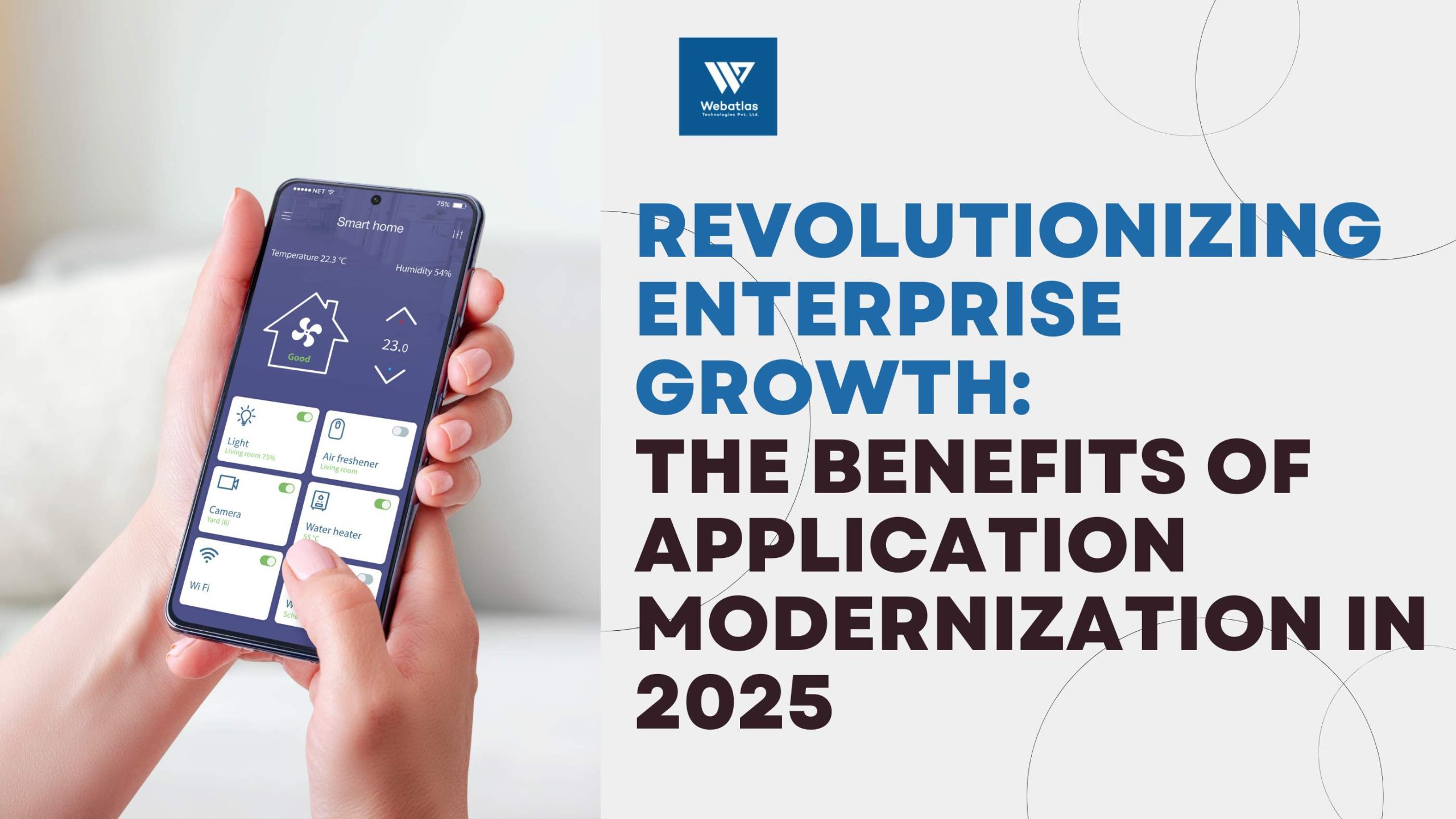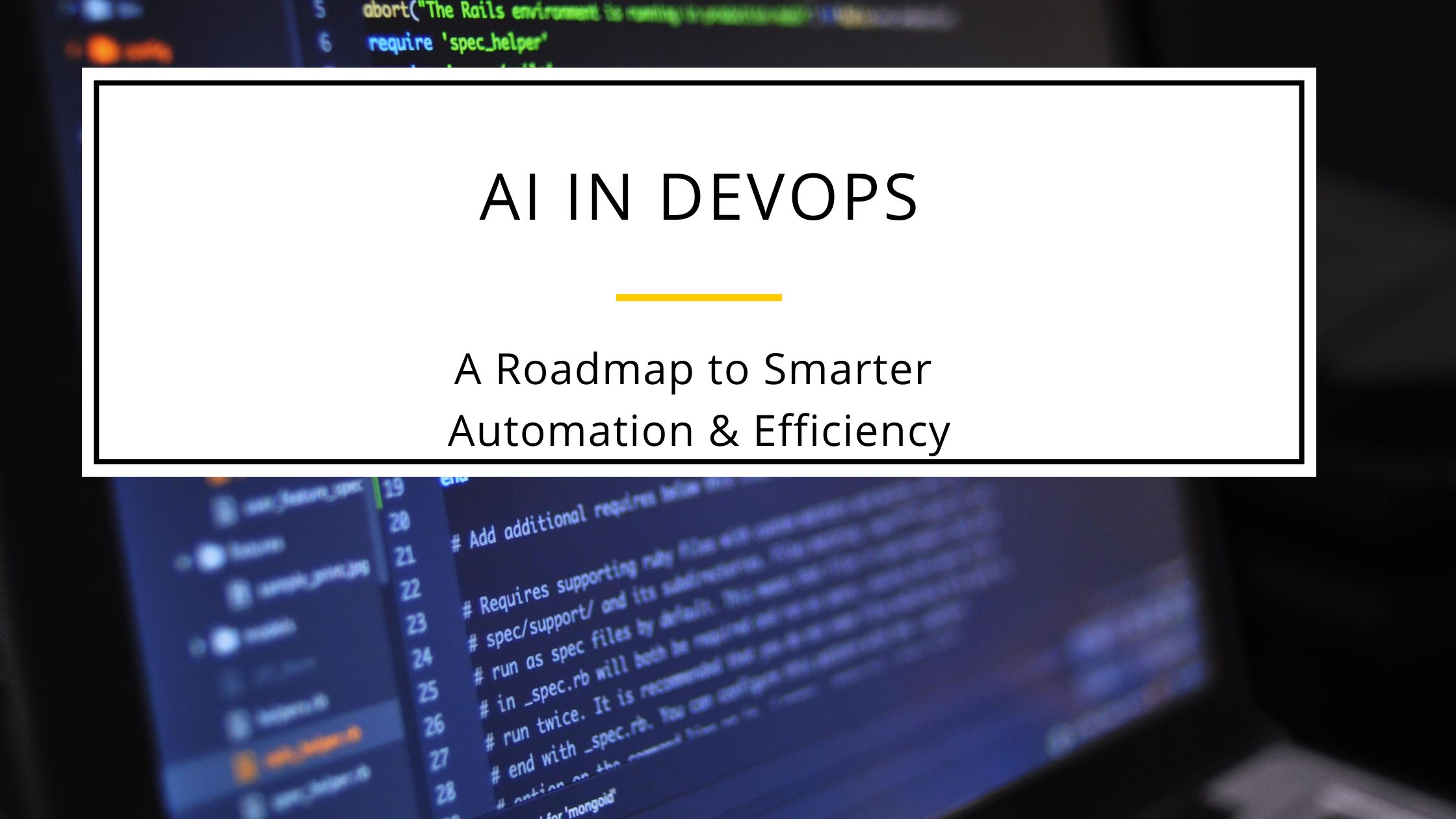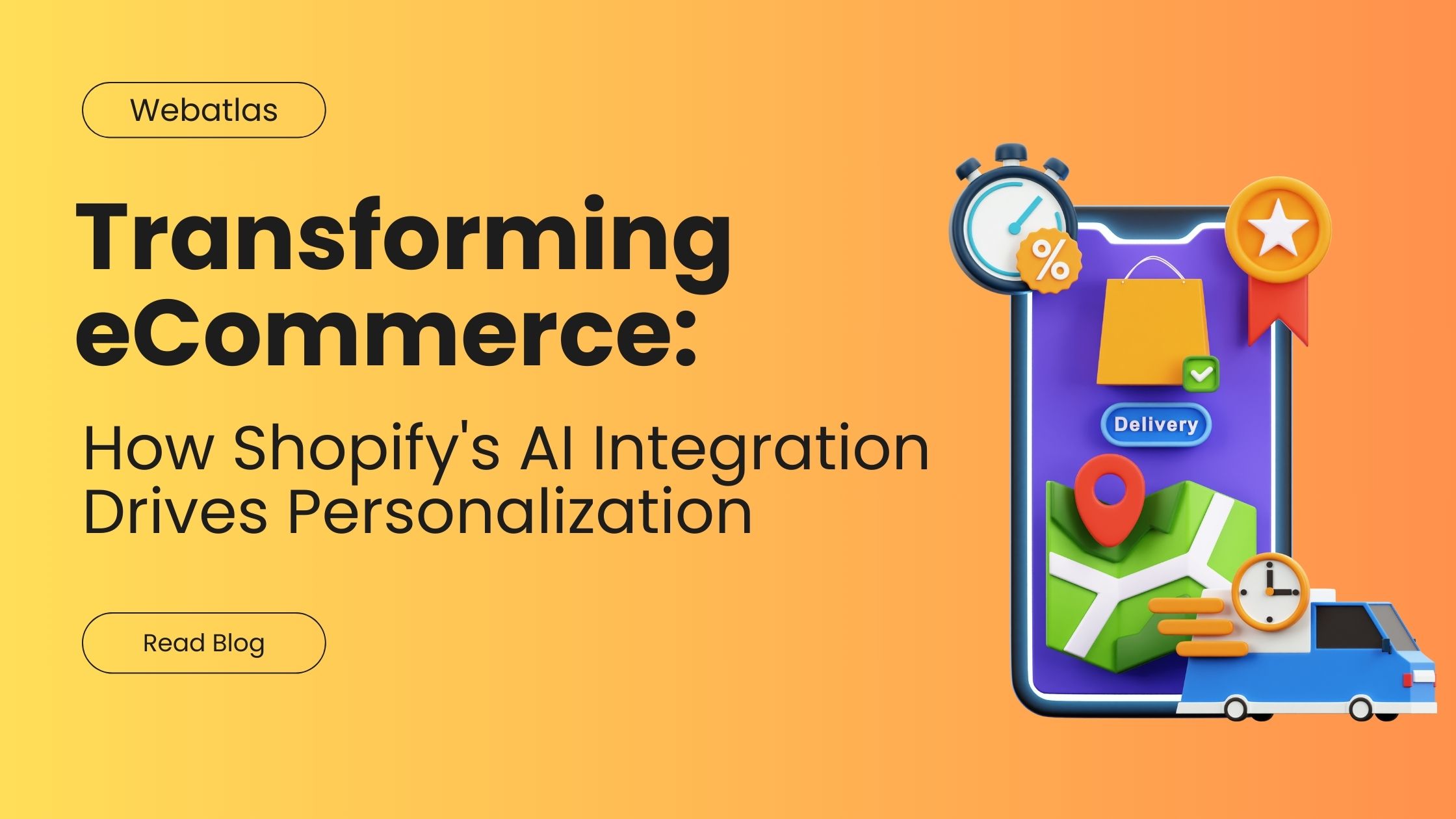Top Benefits of Application Modernization for Enterprises in 2025

In an age where technology is the driving force behind business innovation, enterprises cannot afford to rely on outdated systems. Legacy applications, once the backbone of organizations, are now barriers to growth, efficiency, and innovation. As the business world embraces digital transformation in 2025, application modernization has become a game-changer for enterprises looking to stay competitive, agile, and resilient.
Application modernization is more than just upgrading software; it’s about transforming legacy systems into future-ready platforms that align with modern business demands. From enhancing performance and reducing costs to improving scalability and user experience, modernization empowers businesses to unlock their full potential.
In this blog, we’ll dive into the top benefits of application modernization for enterprises in 2025 and how partnering with experts like Webatlas, a leading mobile app development company, can help your business thrive in the digital-first era.
What Is Application Modernization?
Application modernization refers to updating legacy software systems to modern frameworks, technologies, and architectures. These updates may involve migrating applications to the cloud, refactoring code, adopting microservices architecture, enhancing security, or even rebuilding entire systems from scratch.
The goal is simple: to make applications more efficient, scalable, secure, and future-ready, while reducing costs and increasing performance.
Top Benefits of Application Modernization for Enterprises in 2025
1. Enhanced Business Agility
Modern businesses must adapt quickly to changing market conditions and customer needs. Legacy systems are often rigid and slow to respond to new demands. Application modernization enables businesses to adopt agile development practices, allowing for faster feature rollouts, quicker bug fixes, and improved responsiveness to market changes.
With modernized systems, enterprises can pivot their strategies and processes with minimal disruption, ensuring they stay ahead of competitors.
2. Scalability and Performance Improvements
Legacy applications struggle to handle modern workloads, especially with the explosion of data, users, and services in recent years. Modernization equips enterprises with scalable infrastructure, such as cloud-native architectures and microservices, that can handle increasing demand effortlessly.
For example, by migrating applications to the cloud, businesses can scale resources up or down as needed, optimizing performance while controlling costs.
3. Reduced Operational Costs
Maintaining legacy systems is not only expensive but also inefficient. Outdated hardware, high maintenance fees, and inefficient processes drain resources that could be better invested elsewhere.
Application modernization reduces operational costs by:
- Migrating to cost-effective cloud environments
- Eliminating the need for legacy hardware
- Streamlining workflows through automation and modern tools
These cost savings can be redirected toward innovation and growth initiatives.
4. Improved Security and Compliance
Legacy systems are often vulnerable to security breaches due to outdated protocols and lack of updates. In 2025, cyber threats continue to grow in complexity, making security a top priority for enterprises.
Modernized applications incorporate advanced security measures, such as:
- Multi-factor authentication
- Role-based access controls
- Real-time threat detection
Additionally, modernization ensures compliance with industry regulations and data privacy laws, reducing the risk of costly fines and reputational damage.
5. Enhanced User Experience
Customer expectations in 2025 demand seamless, intuitive, and fast digital experiences. Outdated systems with clunky interfaces and slow response times can frustrate users and damage your brand reputation.
Application modernization improves the UI/UX of your software by:
- Enhancing interfaces for better usability
- Optimizing application speed and performance
- Ensuring compatibility across devices, including mobile, web, and desktop
A modernized application not only retains current customers but also attracts new ones by delivering a superior user experience.
6. Faster Time-to-Market
Legacy systems can slow down development cycles due to outdated tools, processes, and infrastructure. By adopting modern technologies and DevOps practices, enterprises can:
- Automate testing and deployment
- Reduce development times
- Streamline collaboration between development and operations teams
This accelerated time-to-market allows businesses to introduce new products and services faster, giving them a competitive edge.
7. Data-Driven Decision Making
Modernized applications integrate seamlessly with advanced analytics tools, providing businesses with real-time insights and actionable data. With legacy systems, data often remains siloed and difficult to analyze.
Modern systems enable enterprises to harness the power of data for:
- Enhanced decision-making
- Predictive analytics
- Improved customer personalization
In a data-driven world, modernization helps businesses stay informed and make smarter strategic decisions.
8. Competitive Advantage
Enterprises that embrace modernization position themselves as industry leaders. With faster systems, better user experiences, and more efficient processes, businesses can outpace competitors still reliant on outdated systems.
By staying ahead of technology trends, enterprises not only enhance their internal operations but also build stronger relationships with customers and partners.
Why 2025 Is the Perfect Time for Modernization
In 2025, technological innovation continues to accelerate, and enterprises that fail to modernize risk being left behind. Key trends driving the urgency for modernization include:
- Cloud adoption: Cloud platforms are more affordable, scalable, and secure than ever.
- AI and automation: Modern systems integrate seamlessly with AI-powered tools, improving efficiency and innovation.
- Customer expectations: With digital experiences becoming the norm, businesses must deliver modern, user-friendly applications.
The time to modernize is now. Enterprises that invest in modernization today will reap significant rewards tomorrow.
How Webatlas Helps Enterprises Modernize Applications
As a trusted web development company, Webatlas specializes in delivering tailored application modernization services that align with your business goals.
Our Expertise in Application Modernization
- Legacy System Assessment
We begin by analyzing your current systems to identify pain points, opportunities, and the best modernization strategy for your business. - Cloud Migration
Our team has extensive experience in migrating legacy applications to cloud platforms such as AWS, Azure, and Google Cloud, ensuring scalability, performance, and cost savings. - Microservices and DevOps Integration
We break down monolithic applications into microservices for better flexibility and implement DevOps practices to streamline development and deployment. - UI/UX Enhancement
Our design experts revamp outdated interfaces, creating user-friendly applications that meet the expectations of today’s customers. - Advanced Security Implementation
We prioritize security at every stage of modernization, incorporating the latest protocols to safeguard your applications against threats.
Why Choose Webatlas?
- Tailored solutions that address your unique needs
- End-to-end support from assessment to implementation
- Experienced developers with expertise in cutting-edge technologies
- Proven track record of successful modernization projects across industries
Webatlas Success Stories
Case Study 1: Modernizing a Financial Application
A financial services company partnered with Webatlas to migrate their outdated loan management system to the cloud. By leveraging microservices architecture and automating workflows, we reduced processing time by 35% and improved system uptime by 99.9%.
Case Study 2: Revamping a Healthcare Platform
Webatlas modernized a healthcare provider’s patient management software, integrating AI-powered analytics and enhancing the user interface. This resulted in a 25% increase in patient satisfaction and improved operational efficiency.
Conclusion
Application modernization is no longer just a technical upgrade—it’s a strategic imperative for enterprises looking to thrive in 2025 and beyond. By modernizing legacy systems, businesses can unlock benefits such as enhanced agility, improved security, reduced costs, and faster time-to-market.
As a leading mobile app development company, Webatlas has the expertise, tools, and experience to help enterprises successfully modernize their applications. Whether you’re looking to migrate to the cloud, adopt microservices, or enhance your UI/UX, Webatlas can guide your transformation every step of the way.
Ready to future-proof your business? Contact Webatlas today and begin your application modernization journey!
Recent Post
Let's talk about your project, or just come and say hello!
Webatlas Technologies is the fastest growing web and mobile app development company



